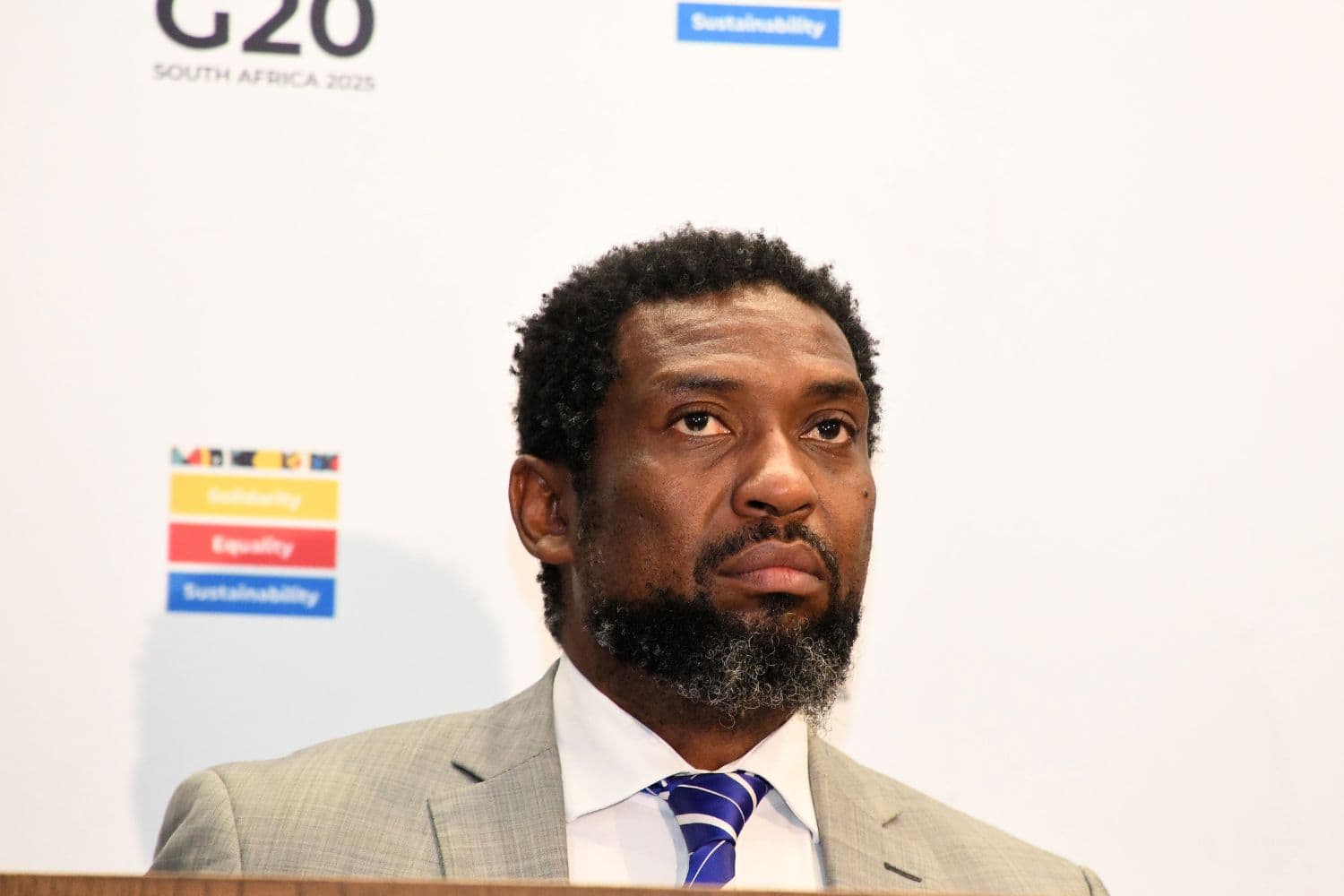Higher education minister said lessons have been learnt with regard to appointing Seta board chairpersons.

Higher Education and Training Minister Buti Manamela has assured that the appointment process for Sector Education and Training Authority (Seta) board chairpersons will be transparent, while also defending his deputy minister over her alleged involvement in the ongoing Seta saga.
Speaking to the media in Pretoria on Tuesday – three weeks after assuming office following the dismissal of former minister Nobuhle Nkabane – Manamela addressed the controversy that erupted in May when a leaked list of Seta board chairperson candidates had ties to the ANC, including newly appointed Deputy Minister Nomusa Dube-Ncube.
Although Nkabane later withdrew the appointments, she faced heavy criticism for misleading the public about the advisory panel she claimed had helped select the candidates.
Seta board appointment process
On Tuesday, Manamela confirmed that nominations for Seta board chairpersons have now closed after the process was restarted.
He indicated that a team within the Department of Higher Education is currently reviewing the submissions to ensure candidates meet the required standards.
“We are going to make sure that people have the skills and the capacity to be able to preside as chairpersons of Seta boards,” Manamela said.
ALSO READ: Parliament concludes Seta panel never existed
The minister acknowledged that his department has learnt lessons and the process is being closely watched.
“We will not hide anything. What has happened in the past has been exactly that: lessons.”
Manamela said nominations were also opened for additional members of the accounting authorities.
He added that the department also intends to strengthen oversight of the sector’s education and training bodies.
“I have already asked the National Skills Authority to provide advice on what we need to do on some of the Setas they have conducted investigations upon, and in the next few days, we will make announcements to that effect.”
Manamela also shrugged off criticism of Dube-Ncube’s earlier Seta appointment and her new role as deputy minister.
“I don’t know really if we should ask her to defend decisions that were not hers.”
Watch the briefing below:
Asked whether morale in the department had been affected by the controversy surrounding Nkabane, Manamela said he had met with all officials, including director-general Nkosinathi Sishi.
“I have met with the entire staff and our message is simple and straightforward: we have to get the department working. We have to make sure that the department is responsive to the communities out there.
“We have to make sure that we restore the trust deficit that has been created by what has happened in the past.”
Nsfas challenges
Manamela acknowledged that the National Student Financial Aid Scheme (Nsfas) has faced significant challenges over the years – from frequent leadership changes to corruption – in response to criticism that it has been failing in its core mandate to provide student funding.
“If we continue in the current form of student funding, we believe this form is definitely going to collapse and therefore, we have relook at the current model.”
He said recruitment for a permanent Nsfas CEO and other management posts was underway.
“We need a stable Nsfas.”
READ MORE: Nsfas still paying R2.5m for head office, as delays prolong terminating lease
Earlier, Manamela said that he wanted to stabilise Nsfas in the next three months.
“I’ve asked the CEO, the national, and the chairperson of the National Student Financial Aid Scheme to convene an urgent briefing and brief the nation, particularly the students, on the state of Nsfas and some of the challenges that they’ve been confronted with.
“To support their work, we’ve already started engagement with Treasury in filling some of the gaps that exist in student funding.”
Investigating UCT discrimination claims
Manamela also addressed allegations of racial discrimination at the University of Cape Town (UCT), where the faculty of social development is accused of giving white students higher marks while disadvantaging black students.
“We are looking into the practicalities of all of that. I must emphasise that such allegations are quite concerning and we will not brush them aside.
READ MORE: UCT racialised marking claims ‘deeply shocking’ – Parliament demands urgent probe
“We will go deeper into it because they go into the root of the credibility of the system.”
He welcomed UCT’s willingness to cooperate.
“The university was prepared to open itself up for an investigation and if there is a need for consequences, they are prepared to make sure those are followed.”
Higher education sector ‘uneven’
Furthermore, Manamela conceded that the post-school education and training sector remained “fragmented and uneven”.
He outlined plans for the next 12 months, including piloting autonomous colleges, reforming community colleges, introducing new Technical Vocational Education and Training (TVET) curriculums, and launching a national database for the sector.
“The intention of the database will be to exclude any of the young people or students who want to benefit from the skills programme, but to ensure that none of them receive the same training more than once.”
Manamela said the department will also complete legislative reviews to address gaps and contradictions in existing laws.
“We’ve already indicated to actors within the system across the board to look forward to engaging with them qualitatively on the pieces of legislative amendments that we will be instituting.”
In addition, infrastructure upgrades will be accelerated to improve campus safety.
“We will work together with various other government departments to make sure that our infrastructure is sound and conducive for learning and teaching.”
NOW READ: More than half of university students rely on Nsfas






